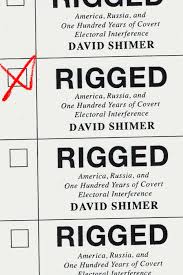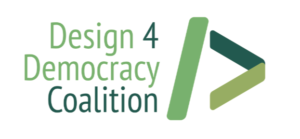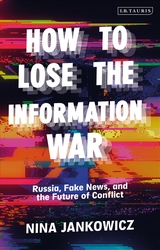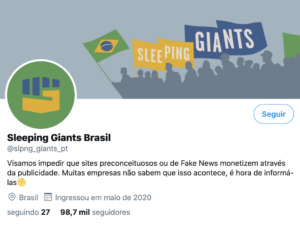Disinformation and democracy https://t.co/6nyHdtOwCq
— Democracy Digest (@demdigest) June 30, 2020
Online disinformation poses an “existential threat” to democracy, according to a cross-party group of peers from the UK’s House of Lords. The government is failing to “get a grip” on the spread of fake news, says the Lords Democracy and Digital Technologies Committee, which urges ministers to act “without delay” to toughen up electoral laws and establish a new regulatory body to monitor social media firms in a bid to tackle the problem, John Johnston reports for Public Technology:
The study comes amid growing fears over the spread of fake news and disinformation, which the group warned was having an “absolutely corrosive” impact on democracy. Hitting out at the “unchecked power” of digital firms such as Google and Facebook, the report called for communications regulator, Ofcom, to receive new powers to fine companies up to 4% of their global turnover if they fail to tackle fake news on their platforms, with the worst offenders blocked from operating in the UK.
The Obama administration had no understanding of the damaging effect of digital disinformation on our democracy, adds Timothy Naftali, the director of N.Y.U.’s undergraduate public policy major and the co-author of “Impeachment: An American History.”
 “It was kind of a shock to me personally how disconnected I was from flyover America,” Obama’s director of national intelligence, James Clapper, said. But it has never been the job of American intelligence to assess the effect of foreign disinformation on our society. That’s the job of elected leaders. The Obama team worried less about what Putin had done than what he could do, and, as a result, they missed the fact that Russia’s interference represented the greatest degree of Kremlin risk-taking aimed at the United States since the Cuban missile crisis, he writes in a Times review of Rigged: America, Russia, and One Hundred Years of Covert Electoral Interference by David Shimer:
“It was kind of a shock to me personally how disconnected I was from flyover America,” Obama’s director of national intelligence, James Clapper, said. But it has never been the job of American intelligence to assess the effect of foreign disinformation on our society. That’s the job of elected leaders. The Obama team worried less about what Putin had done than what he could do, and, as a result, they missed the fact that Russia’s interference represented the greatest degree of Kremlin risk-taking aimed at the United States since the Cuban missile crisis, he writes in a Times review of Rigged: America, Russia, and One Hundred Years of Covert Electoral Interference by David Shimer:
Obama “was always worried about escalation,” the former assistant secretary of state {and NED board member} Victoria Nuland added. In the Cold War, the most successful foreign policy presidents were those who didn’t overestimate the Kremlin’s capabilities. To give just two examples: Harry Truman defied Stalin’s blockade of West Berlin and Dwight Eisenhower ignored Khrushchev’s threats toward that same city. But in 2016, as Shimer reveals, President Obama concluded the United States would lose in a game of tit-for-tat risk-taking with Putin.
“Intervening in other countries and covertly supporting allies was in the Bolsheviks’ DNA in 1917. It would take another generation and a second world war for Americans to start playing the same game,” Naftali observes. “The pot the ideologically blinkered Soviets couldn’t figure out how to stir is now being roiled by their pragmatic successors.”
 Arizona State University’s Global Security Initiative (above) works across disciplines to develop new approaches to security challenges that are “global in scale, borderless by nature, interdependent and often have no clear solutions,” it reports.
Arizona State University’s Global Security Initiative (above) works across disciplines to develop new approaches to security challenges that are “global in scale, borderless by nature, interdependent and often have no clear solutions,” it reports.
“We would like to identify ways where we can both make the population more resilient to disinformation and create tools and technologies that allow detection, and essentially mitigation of the spread of disinformation,” said Nadya Bliss, executive director of ASU’s Global Security Initiative.
Research scientist Scott Ruston leads the institute’s Narrative, Disinformation and Strategic Influence research pillar.
 The Design 4 Democracy Coalition unites groups of democracy and human rights organizations around the world that are committed to ensuring that technology platforms and products should help build a more just and democratic world. The D4D Download is the best way to stay up to date with news & events at the intersection of tech, disinformation, cybersecurity, and democracy.
The Design 4 Democracy Coalition unites groups of democracy and human rights organizations around the world that are committed to ensuring that technology platforms and products should help build a more just and democratic world. The D4D Download is the best way to stay up to date with news & events at the intersection of tech, disinformation, cybersecurity, and democracy.
What can the West do about the threat of online warfare and attacks from malign actors?
 Nina Jankowicz, the Disinformation Fellow at the Wilson Center’s Science and Technology Innovation Program, lays out the path forward in How to Lose the Information War: Russia, Fake News, and the Future of Conflict (above), the Wilson Center adds:
Nina Jankowicz, the Disinformation Fellow at the Wilson Center’s Science and Technology Innovation Program, lays out the path forward in How to Lose the Information War: Russia, Fake News, and the Future of Conflict (above), the Wilson Center adds:
The book reports from the front lines of the information war in Central and Eastern Europe on five governments’ responses to disinformation campaigns. It journeys into the campaigns the Russian and domestic operatives run, and shows how we can better understand the motivations behind these attacks and how to beat them. Above all, this book shows what is at stake: the future of civil discourse and democracy and the value of truth itself.
CLICK HERE to view the webcast discussion of the book on Thursday, July 9, 2020. 1:00pm-2:00pm ET
Over 50 civil society and media freedom groups are calling on Brazilian legislators to immediately reject the latest version of a disinformation bill following a process marked by little multi-stakeholder participation and poorly drafted provisions that may amount to serious harm to freedom of expression and privacy, Freedom House reports.

Credit: Twitter
The undersigned organizations – including partners of the National Endowment for Democracy (NED) – called on Brazilian legislators to postpone the voting on the so-called “Fake News Bill” (PL 2630/2020) and remove it from the fast-tracking mode, and open a multistakeholder task force to enable participatory discussion on how to respond to the challenges of disinformation while respecting Brazil’s international human rights commitments and existing human rights standards, it adds.
Signatories
- Access Now, Global
- Amnesty International Brazil
- ARTICLE 19, Global
- Asociación Mundial de Radios Comunitarias (AMARC), Latin America and the Caribbean
- Asociación Nacional de la Prensa (ANP), Bolivia
- Asociación por los Derechos Civiles (ADC), Argentina
- Asociación TEDIC, Paraguay
- Associação Brasileira de Jornalismo Investigativo (ABRAJI), Brazil
- Association for Progressive Communications (APC), Global
- Autres Brésils, France
- Center for Democracy & Technology, US/EU
- Centro de Archivos y Acceso a la Información Pública (CAinfo), Uruguay
- Centro Nacional de Comunicacion Social AC, Mexico
- Chaos Computer Club, Germany
- Ciberfeministas GT, Guatemala
- Damian Loreti, Argentina
- Derechos Digitales, Latin America
- Digitale Gesellschaft, Germany
- Digital Empowerment Foundation, India
- Electronic Frontier Foundation (EFF), Global
- Espacio Público, Venezuela
- Freedom House, United States
- Fundación Datos Protegidos, Chile
- Fundación Escuela Latinoamericana de Redes (EsLaRed), Venezuela
- Fundación Karisma, Colombia
- Fundación para la Libertad de Prensa (FLIP), Colombia
- Fundamedios, Latin America
- Future of Privacy Forum, Global
- Hiperderecho, Peru
- Human Rights Watch, Global
- IFEX – América Latina y el Caribe (IFEX-ALC), Latin America and the Caribbean
- Index on Censorship, Global
- Instituto de Prensa y Libertad de Expresión (IPLEX), Costa Rica
- Instituto de Tecnologia e Sociedade do Rio (ITS Rio), Brasil
- Instituto Prensa y Sociedad, Peru
- Instituto Prensa y Sociedad, Venezuela
- Internet Without Borders, Global
- IPANDETEC, Central America
- ISOC Brazil (Brazil Chapter of Internet Society)
- Martín Becerra, Argentina
- OBSERVACOM, Latin America
- Observatorio Latinoamericano para la Libertad de Expresión (OLA), Latin America
- Open Knowledge Brasil
- Paradigm Initiative (PIN), Africa
- PEN America, United States
- R3D: Red en Defensa de los Derechos Digitales, Mexico
- Reporters Without Borders (RSF), Global
- Software Freedom Law Centre (SFLC.in), India
- Sulá Batsú, Costa Rica
- Sursiendo, Comunicación y Cultura Digital, Mexico
- Tor Project, Global
- Usuarios Digitales, Ecuador







